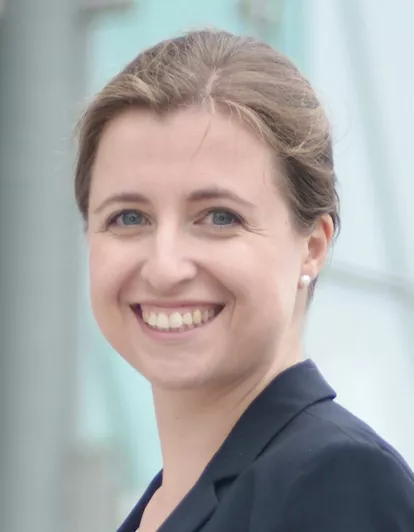
U of T Mississauga awarded over $3 million in NSERC research funding
University of Toronto Mississauga researchers received five years of funding through the 2019 NSERC Discovery Grant program. Two of the successful awardees also received additional Discovery Accelerator Supplements for a further three years of funding. One researcher received a one-time Research Tools and Instruments grant.
The NSERC Discovery Grant program fosters high-quality research excellence by providing sustained funds to enable the pursuit of research interests with long-term goals.
The NSERC Discovery Accelerator Supplements are awarded to researchers who have superior, established research programs and who have the potential to become international leaders in their fields. The supplements are meant to enable researchers to capitalize on bold ideas.
Jessica Burgner-Kahrs, associate professor in the Department of Mathematical & Computational Sciences, and Director of the Continuum Robotics Laboratory at the U of T Mississauga, is one researcher who received both the Discovery Grant and the Discovery Accelerator Supplement for a total of $385,000.
Tubular continuum robotics
When you think of robotics, you might think of a humanoid robot from science fiction or perhaps an industrial robot from an assembly line.
Burgner-Kahrs researches something completely different—tubular continuum robotics. Inspired by nature, a continuum robot moves like an octopus’ tentacle and is tiny—just millimetres wide. It is capable of following curves, manoeuvring around bends and manipulating objects in confined spaces.
Tubular continuum robots show a lot of promise for medical interventions, such as diagnosis through a natural orifice or minimally invasive surgery, says Burgner-Kahrs. "For instance, they could reach the skull base through the nasal passage to remove tumours or deliver drugs on curvilinear paths to locations deep within the human body."
With their potential for applications in medicine, Burgner-Kahrs wants to get tubular continuum robots off the laboratory bench and into the O.R.
Yevgeniy Liokumovich, who will join the Department of Mathematical & Computational Sciences July 1 as an assistant professor, also received a $120,000 Discovery Accelerator Supplement in addition to a $155,000 Discovery Grant for his research in differential geometry.
Awardees
Department of Biology
-
Baohua Liu, $225,000 Discovery Grant for his project Cell-type-specific connectivity of brainstem circuits mediating the cortical control of innate reflexes
-
Shannon McCauley, $140,000 Discovery Grant for her project Effects of local and regional processes on freshwater metacommunities in a changing world
-
Rob Ness, $84,000 Research Tools & Instrumentation grant for his project Flow cytometry for high throughput microbial experimentation
Department of Chemical & Physical Sciences
-
Patrick Gunning, $320,000 Discovery Grant for his project Novel chemical approaches to protein targeting and detection
-
Andreas Hilfinger, $145,000 Discovery Grant, Theory of biochemical reaction networks in cells: understanding and exploiting stochastic fluctuations
-
Marc Laflamme, $125,000 Discovery Grant, Complexity in the oldest animal ecosystems
-
Joshua Milstein, $180,000 Discovery Grant, Revealing the biophysical mechanisms behind gene silencing by the bacterial immune system one transcript at a time
-
Semechah K.Y. Lui, $150,000 Discovery Grant for her project Toward physics-based seismic hazard assessments: A holistic approach to understanding the physics of induced earthquakes
Department of Mathematical & Computational Sciences
-
Ilia Binder, $130,000 Discovery Grant for his project Geometric function theory and mathematical physics
-
Jessica Burgner-Kahrs, $265,000 Discovery Grant and $120,000 Discovery Accelerator Supplement for her project Learning the kinematics of tubular continuum robots: Model-based vs. data-based methods
-
Yevgeniy Liokumovich, $155,000 Discovery Grant and $120,000 Discovery Accelerator Supplement for his project Minimal surfaces and quantitative topology of the space of cycles
-
Florian Shkruti, $115,000 Discovery Grant for his project New directions in robotic environmental monitoring via machine learning
-
Ke Zhang, $105,000 Discovery Grant for his project Instabilities in Hamiltonian systems
Department of Psychology
-
Tina Malti, $140,000 Discovery Grant for her project Mechanisms underlying children's processing of ethical conflicts: An affective developmental approach
Kent Moore, UTM Vice-Principal, Research, extends his congratulations to all the deserving recipients who bring world-class research to the U of T Mississauga.
Revised: May 24, 2019
